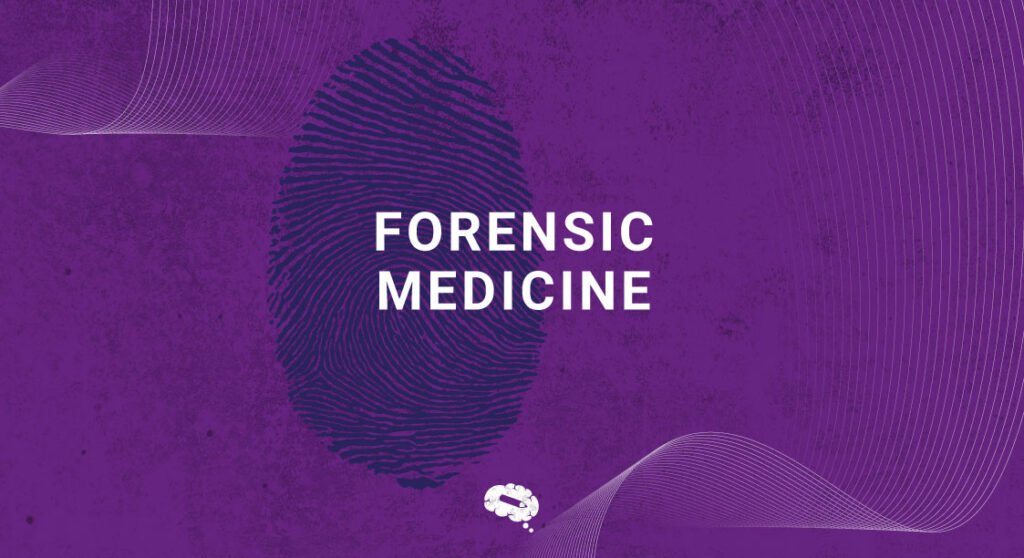Forensic Medicine

About Courses
Embark on a captivating exploration of Forensic Medicine with our comprehensive online course. Delve into the intricate world of medico-legal investigations, uncovering the forensic principles that play a pivotal role in crime scene analysis and victim identification. Guided by seasoned experts and leveraging state-of-the-art educational resources, this course offers a riveting journey into the intersection of medicine and criminal justice.
Importance of Forensic Medicine:
- Crime Scene Analysis:
- Forensic Medicine is instrumental in meticulously analyzing crime scenes, providing crucial insights for criminal investigations and case resolutions.
- Victim Identification:
- In cases of unidentified bodies, forensic techniques help in victim identification, offering closure to families and aiding legal proceedings.
- Legal Proceedings:
- Forensic evidence, including medical reports and expert testimonies, serves as a cornerstone in legal proceedings, ensuring justice is served accurately.
- Medical Legal Autopsies:
- Forensic pathologists conduct medical legal autopsies, unraveling the cause of death and collecting evidence vital for legal investigations.
- Forensic Toxicology:
- Understanding the effects of toxins and substances on the human body, forensic toxicology plays a crucial role in cases involving poisoning and substance abuse.
- Forensic Odontology:
- Dental records and forensic odontology contribute to the identification process, particularly in cases where traditional identification methods are challenging.
- Ballistics and Trauma Analysis:
- Forensic Medicine aids in analyzing ballistic trajectories and trauma patterns, providing valuable information in cases involving firearms or physical assaults.
- Time of Death Estimation:
- Forensic experts use medical knowledge to estimate the time of death, a critical factor in criminal investigations.
- Expert Witness Testimonies:
- Forensic medical experts provide expert witness testimonies in court, translating complex medical findings into comprehensible information for legal professionals.
- Advancements in Forensic Science:
- Ongoing research and advancements in forensic science contribute to the development of new techniques, tools, and technologies for crime-solving.
- Orientation
- General Information
- Forensic Pathology
- Clinical Forensic Medicine
- Medical Jurisprudence (Medical Law and ethics)
- Forensic Psychiatry
- Forensic Laboratory investigation in medical-legal practice
- Thanatology
- General Toxicology
- Pharmaceutical Toxicology
- Sociomedical Toxicology
- Jurisprudence and Forensic Medicine – Qbank
- Toxicology – Qbank
- Forensic Scientist
- Forensic Expert
- Clinical Investigator
- Criminologist
- Research Associate
- Forensic Medicine Professor
- Jobs at Intelligence Bureau
- Forensic Analyst at Investigation firms
- Manager Forensic Advisory
- Forensic Pathologist
- Medical Officer
- Toxicologist
- Forensic Medicine, where you will acquire a profound understanding of medico-legal investigations, crime scene analysis, and the pivotal role forensic principles play in solving criminal cases. This comprehensive course covers a spectrum of topics, including crime scene documentation, victim identification, forensic toxicology, and medical legal autopsies. Guided by seasoned experts, you will delve into the intricacies of forensic odontology, ballistics, trauma analysis, and the estimation of the time of death.
- As you progress through the modules, you will gain hands-on experience in applying forensic techniques to real-world scenarios. The course emphasizes the importance of forensic evidence in legal proceedings, providing insights into the complexities of expert witness testimonies and the use of cutting-edge technologies in forensic science. By the end of the program, you will emerge with a well-rounded knowledge base, ready to apply forensic medicine principles to solve complex cases and contribute to advancements in the field.
- Additionally, the course will explore the interdisciplinary nature of forensic medicine, examining its intersections with law, medicine, and technology. You will learn how forensic medicine contributes to crime prevention, victim justice, and the development of innovative tools and methodologies in the ever-evolving landscape of forensic science. Overall, this course promises a comprehensive and immersive learning experience that equips you with the skills and knowledge necessary to navigate the multifaceted world of forensic medicine.


